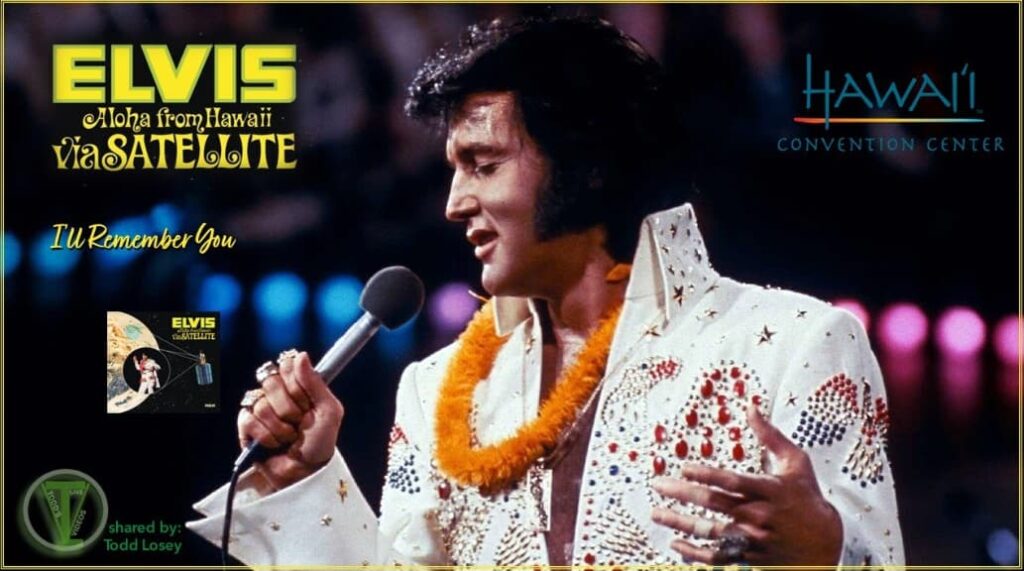
I’ll Remember You: A Timeless Testament to Lasting Love and Loss
The year was 1973, and the world was tuning in to a moment of unprecedented musical history. On January 14, from the International Convention Center in Honolulu, Hawaii, Elvis Presley, the King of Rock ‘n’ Roll, delivered a performance that would become a cultural touchstone: ‘Aloha from Hawaii via Satellite’. It was the first live concert by a solo artist to be broadcast globally via satellite, reaching an estimated one billion viewers. Amidst the electrifying showmanship and chart-topping hits, a poignant ballad stood out, a song that transcended the spectacle and touched the deepest chords of the human heart: “I’ll Remember You.”
This wasn’t a new song for Elvis. It was a cover, originally written by the great Hawaiian songwriter Kui Lee and first recorded by Don Ho in 1966. But in Elvis’s hands, in that specific moment, it became something else entirely—a soulful elegy, a tender promise, and a devastating farewell. While the studio version, released on the B-side of the single “If I Can Dream” in 1968, had its own quiet power, it was the live performance in Hawaii that truly etched it into the collective memory. It was here, with his voice raw with emotion and his stage presence commanding yet vulnerable, that “I’ll Remember You” found its definitive voice.
The song’s meaning, at its core, is a simple, yet profound, declaration of enduring remembrance. It’s a vow to a loved one, a promise that even as time and distance may separate them, their memory will be cherished forever. The lyrics speak of a love so deep it leaves an indelible mark, a presence that will linger “when the moon is full and bright” and “when the stars are shining down.” For many, the song resonates with the experience of losing a loved one, not just to distance, but to the finality of death. It’s a comforting balm for a broken heart, a way of saying that goodbye doesn’t mean forgetting.
Elvis’s rendition, however, carried an additional, deeply personal weight. The story behind his connection to the song is as moving as the melody itself. Kui Lee, the song’s brilliant but tragic composer, died of cancer in 1966 at the young age of 34, just as his career was taking off. Elvis, who had a deep love for Hawaiian culture and its music, was aware of Kui’s story. By performing “I’ll Remember You,” he was not only honoring Kui’s legacy but also channeling a universal grief—a shared sense of loss for someone taken too soon. The performance became a quiet tribute to Kui, a silent conversation between two musical souls, one gone too soon, and the other, the King, giving his artistry to ensure the memory of the former would live on.
For a generation of listeners, the song also evokes the bittersweet nostalgia of a simpler time. It’s a time capsule of the early 70s, a reminder of when music had a different kind of gravitas, when a single ballad could bring an arena to a hushed silence and move millions to tears. The song didn’t chart as a single from the Hawaii concert, as it was a part of the album and live broadcast, but the album itself, ‘Aloha from Hawaii’, was a colossal success, hitting the number one spot on the Billboard 200 chart and becoming one of the best-selling albums of Elvis’s career. Its enduring popularity is a testament to the emotional power of the performance and the timeless resonance of “I’ll Remember You.” It wasn’t just a song; it was a moment—a fleeting, beautiful snapshot of a man at the height of his power, using his gift not just to entertain, but to connect, to heal, and to remember.